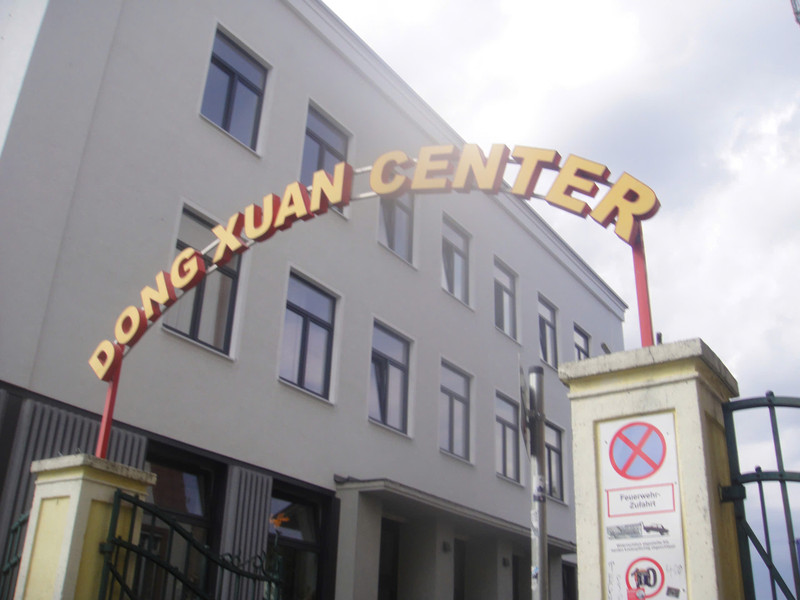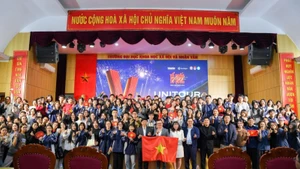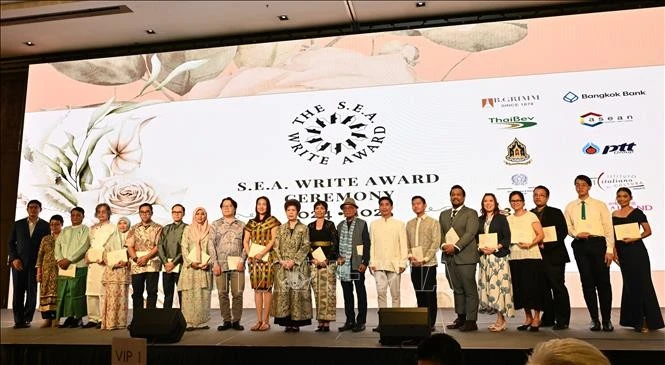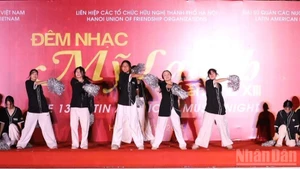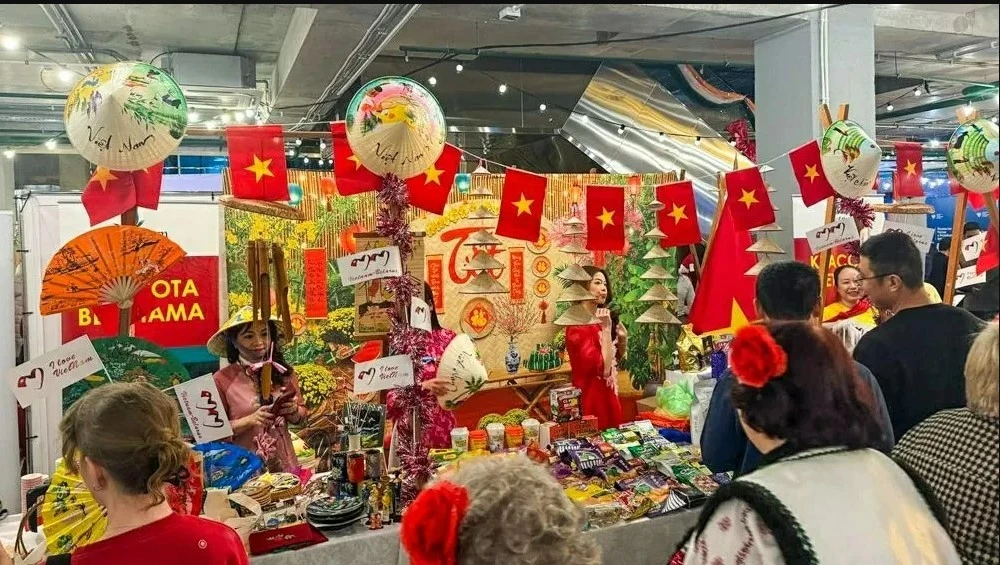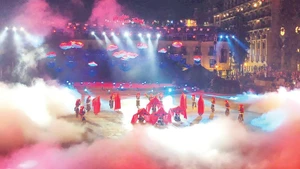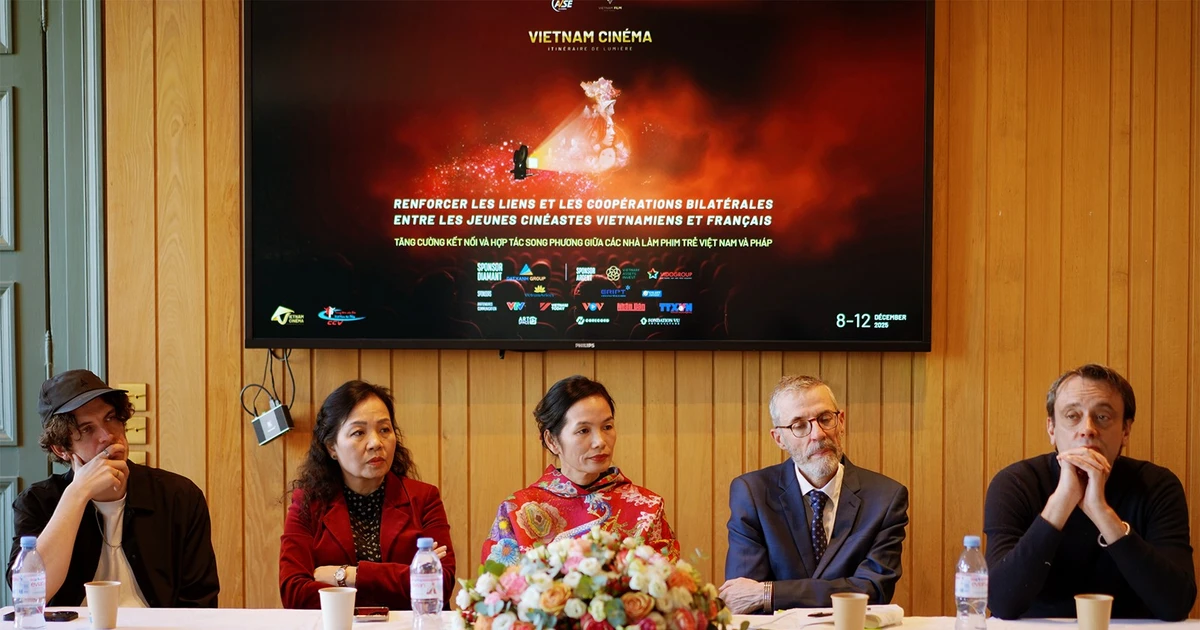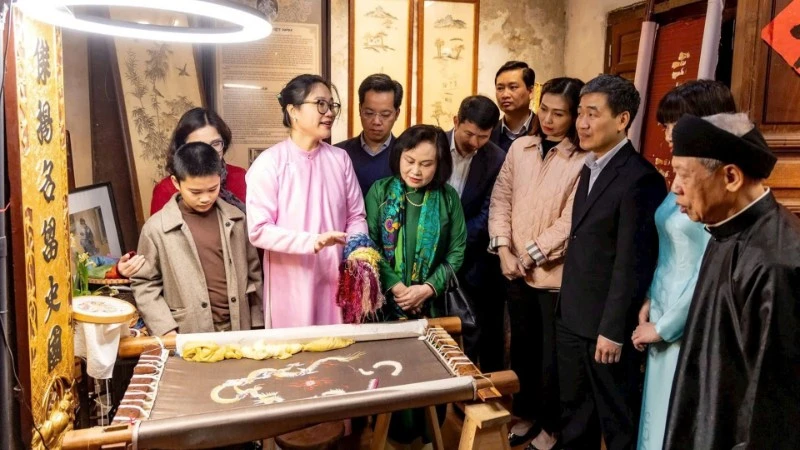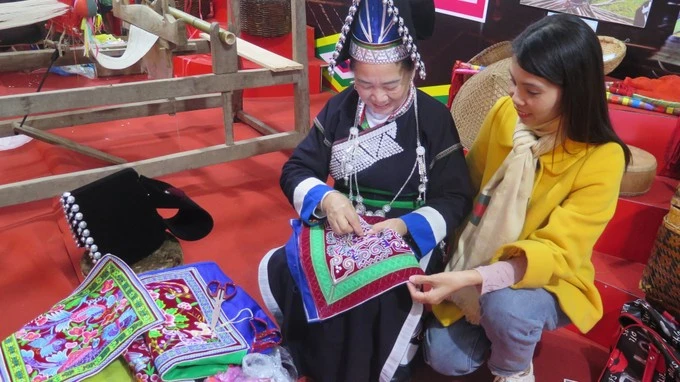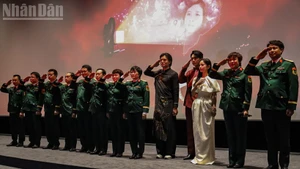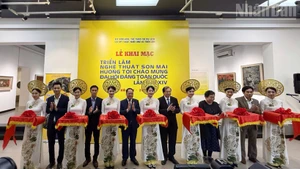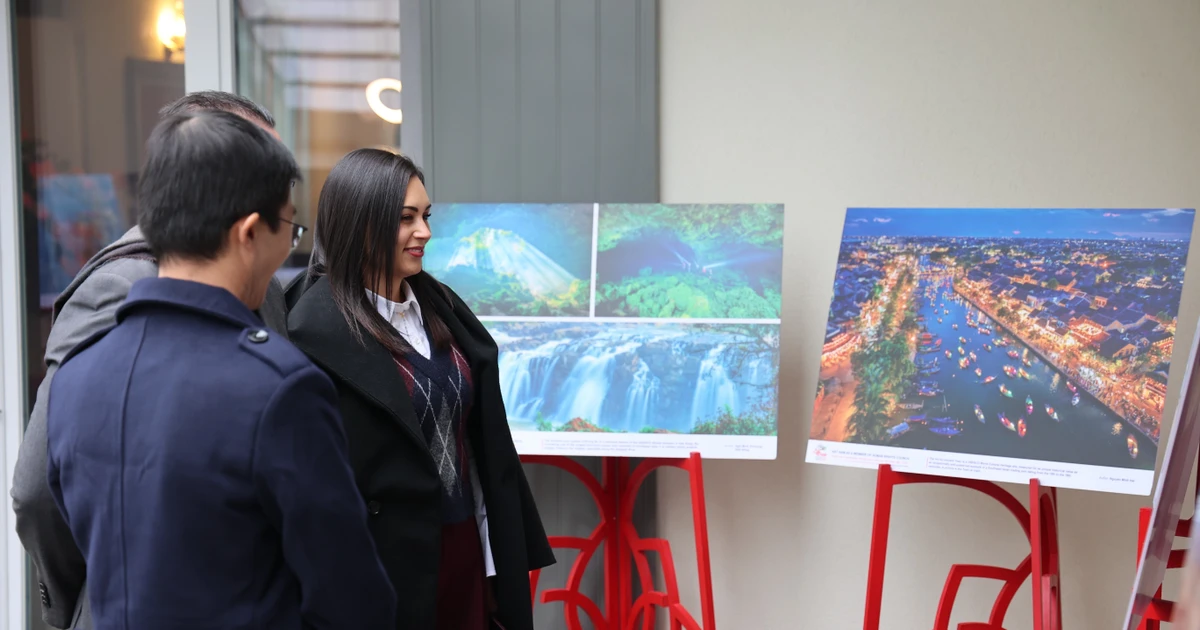As I entered the vibrant Dong Xuan Center at the end of August, the warm, gentle air wrapped around me like a cozy hug, welcoming me home. The air was thick with the fragrant aroma of fresh herbs and sizzling street food, a welcoming invitation to explore.
Vendors were already hard at work, their cheerful chatter and laughter filling the air as they set up their stalls. Despite the soaring temperatures, the determination and enthusiasm of the market community were unmistakable. Families, friends, and shoppers gathered around, sharing stories while expertly navigating through the diverse array of products: colorful vegetables, fragrant spices, and handmade crafts from Vietnam.
Children from some of the shoppers’ families weaved through the crowd, their giggles blending with the sounds of sizzling woks and clattering dishes, contributing to the vibrant energy of the market. I could not help but admire the dedication of the vendors, who greeted every customer with warm smiles, ready to share not just their goods but also their culture.
Each stall told a story, from the handmade noodles for pho bo (beef noodle soup) crafted with love to the banh mi made fresh on the spot. It was a testament to the resilience and passion of the Vietnamese community in Berlin, where challenging work and a rich cultural heritage came together to create an inviting and unique marketplace.
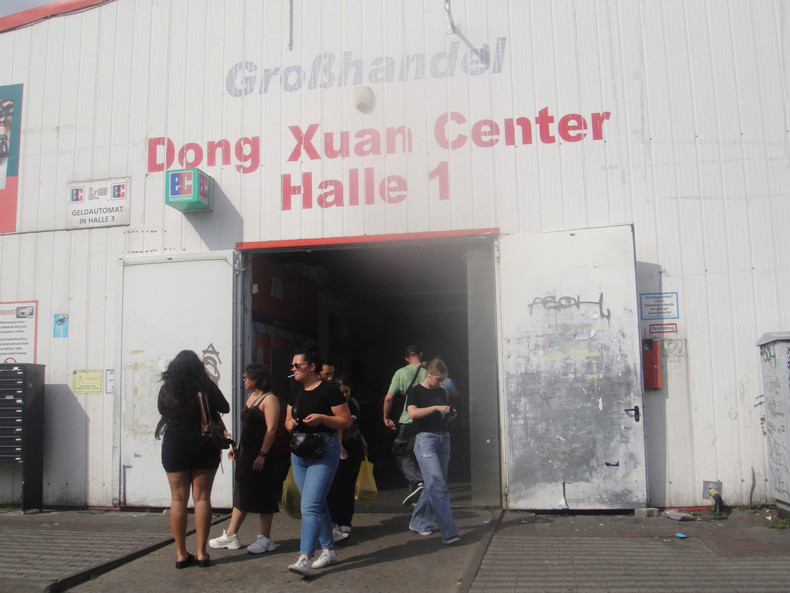 |
| Hall 1 – one of 9 halls at Dong Xuan Center. (Photo: Maxine Montreux) |
In the 1980s, the German Democratic Republic (GDR) faced a shortage of skilled labor. In response, the GDR government signed agreements with other socialist countries—including Vietnam, the Democratic People’s Republic of Korea, Mozambique, China and Cuba—to bring in workers. These individuals were expected to return home at the end of their contracts, typically after five years.
Today, the Dong Xuan Center has evolved into an economic and cultural hub for Vietnamese people living in Berlin. According to the Vietnamese Association in Berlin and Brandenburg, of the approximately 100,000 Vietnamese and German Vietnamese residents in Germany, about 26,500 live in the capital. The Dong Xuan Center, a sprawling nine-story shopping complex, has become a one-stop shop where visitors can find anything from groceries and clothing to toys, artificial flowers, and cosmetics.
The Dong Xuan Center is located on Herzberg Street in the Lichtenberg district of East Berlin, home to 4,000 Vietnamese residents. This center has become a beloved gathering place for the Vietnamese community in Germany’s capital.
With 250 stalls, over 60% are operated by Vietnamese entrepreneurs, followed by Chinese, Indian, Turkish, Pakistani, Polish, and even German business owners. The center is primarily a wholesale hub, offering a wide range of products including textiles, footwear, cosmetics, handicrafts, artificial flowers, and home decor. It is also a haven for food lovers, with restaurants and Asian grocery stores selling everything from meats and seafood to rice, noodles, and dry pho.
You will also find beauty salons, nail care services, bookshops, and cultural goods stands, alongside fresh produce like water spinach, amaranth, celery, gourds, cucumbers, bitter melons, taro, sweet potatoes, and cassava. Herbs such as cilantro, perilla, ginger, garlic, galangal, lemongrass, and chili peppers are also readily available.
The existence and growth of this center have provided employment and sustained livelihoods for thousands of Vietnamese people. Every day, hundreds of trucks, driven by Vietnamese, Indian, Turkish, Chinese, and even German vendors, arrive from smaller towns to stock up on goods at the center before distributing them across Germany.
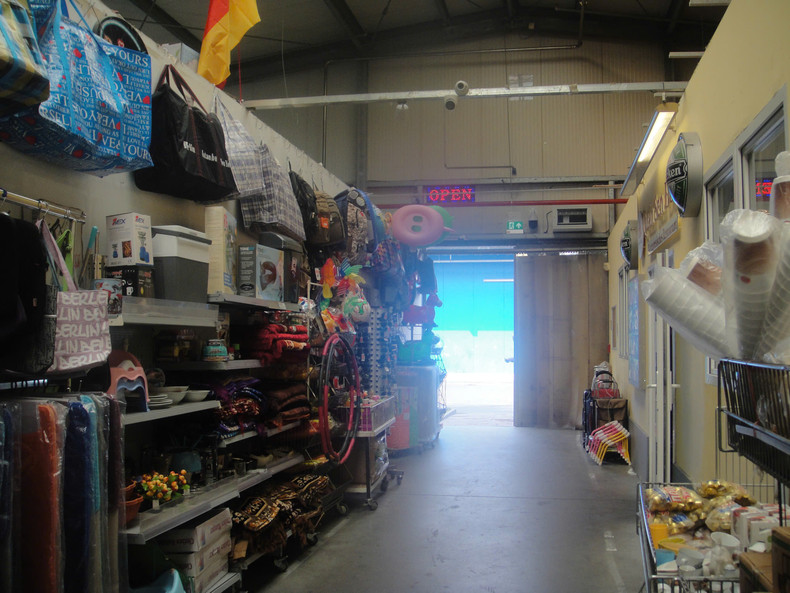 |
| A corner inside the market hall. (Photo: Maxine Montreux) |
In crafting this article, I drew inspiration from a conversation I had with a woman who has worked at the Dong Xuan Center for years. Her perspective offers an intimate, raw look at what it is like to be a part of this vibrant community, shedding light on the daily rhythms, challenges, and the deep sense of pride that comes with being part of this beloved marketplace. Through her eyes, we can see the center not just as a market, but as a living symbol of Berlin’s multicultural spirit.
Through my conversation with Nguyen Thi Lien, a vendor at the center who has lived in Berlin since 1987, I gained deeper insight into life at the Dong Xuan Center. She arrived as a labor worker under the GDR’s program to bring in skilled labor from socialist countries like Vietnam. Her shop, which she opened in 2004, has sustained her family for over 20 years.
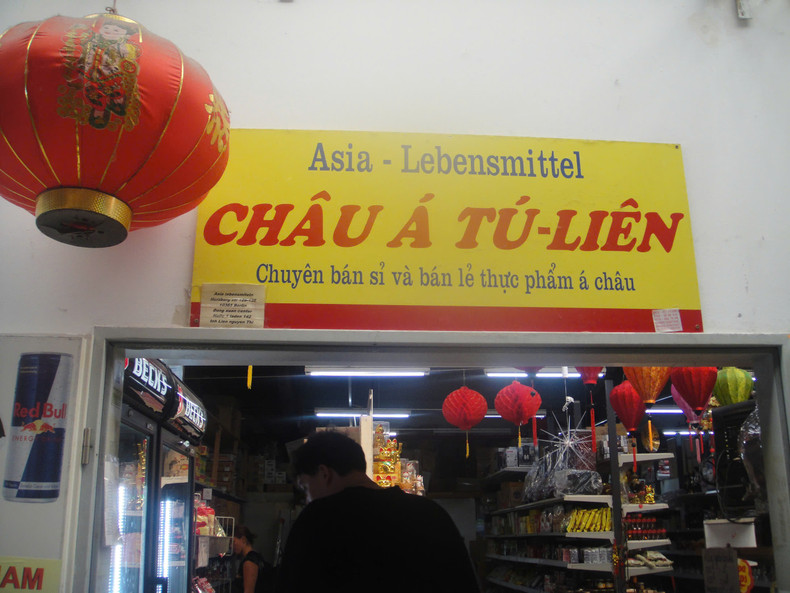 |
| Mrs. Lien’s shop. (Photo: Maxine Montreux) |
Lien spoke warmly of the Vietnamese community’s resilience, recounting the joy of seeing familiar faces every day despite the challenges of running a business. She reflected on the pride of contributing to her community’s livelihood, highlighting the hard work, perseverance, and strong values of Vietnamese immigrants who came to Germany “with empty hands” and built stable lives for themselves. Her pride in seeing the younger Vietnamese generation thrive in Germany—many of whom work and contribute significantly to the economy—was deeply appreciated.
Yet, she did not shy away from discussing the difficulties vendors face today, from increased taxes to market competition. Despite these challenges, she finds meaning in her work, viewing the Dong Xuan Center as her second home, a place that fuels both her livelihood and sense of community. She notes that while German markets are structured with fixed prices, the center keeps some elements of traditional Vietnamese markets alive, where bargaining remains part of the experience.
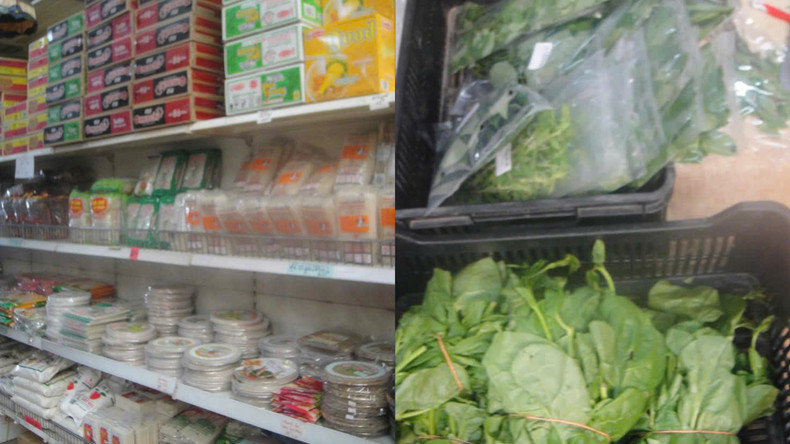 |
| Inside Mrs. Lien’s shop. (Photos: Maxine Montreux) |
The Dong Xuan Center is much more than just a market—it is a cultural hub that has woven itself into the fabric of Berlin’s diverse community. Located in the city’s eastern part, this sprawling complex offers everything from fresh produce and traditional Vietnamese dishes to beauty salons and fashion boutiques. The market has become a key destination for Berlin’s Vietnamese community and beyond, serving as a place where cultures meet, and traditions are kept alive. Its presence adds a unique flavor to the city’s multicultural landscape, bridging a cultural gap and creating a space for mutual understanding and exchange.
Beyond its function as a market, the Dong Xuan Center serves as a cultural bridge between Vietnamese and German communities. Events and festivals held here provide opportunities for Berlin’s residents to experience Vietnamese culture firsthand. These gatherings include traditional performances, cooking demonstrations, and cultural festivals that allow for a meaningful cultural exchange. This mix of commerce and community engagement makes the center an emblem of multicultural Berlin, creating space for mutual understanding and fostering bonds within the city’s diverse population.
The Dong Xuan Center is not only an economic lifeline but also a cultural pillar for Berlin’s Vietnamese community. It stands as a testament to the importance of cultural markets in urban areas, providing spaces where people can connect, share traditions, and foster understanding across cultures. The center continues to evolve, with its legacy shaped by the passion and dedication of its community members. As Berlin grows and becomes even more multicultural, the Dong Xuan Center will remain a beacon of Vietnamese culture, serving as both a marketplace and a symbol of the vibrant, diverse spirit of Berlin.
